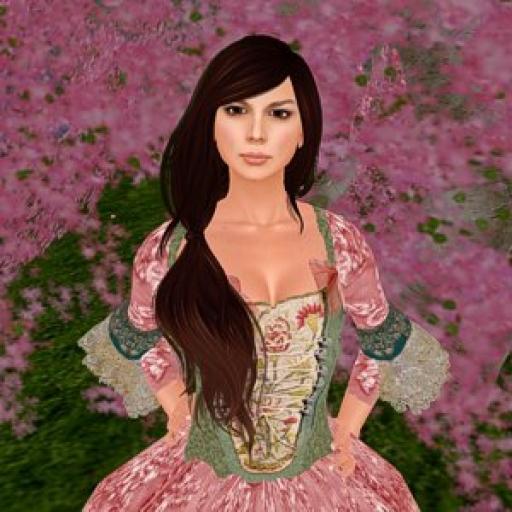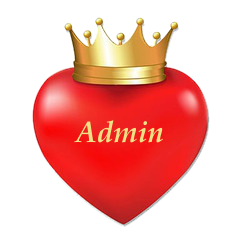
VW: Second Life
Location: Ottawa, ON
Country: CA

Ada Lovelace Day: A Celebration of Women in Science & Technology

Today is Ada Lovelace Day , a celebration of women in science, technology, engineering and mathematics (STEM). It aims to increase the profile of women in STEM and, in doing so, create new role models who will encourage more girls into STEM careers and support women already working in STEM.
Ada Lovelace is a fascinating woman, credited with being the first computer programmer back in the 1830s!
Augusta Ada King-Noel, Countess of Lovelace ( née Byron ; 10 December 1815 – 27 November 1852) was an English mathematician and writer, chiefly known for her work on Charles Babbage 's early mechanical general-purpose computer, the Analytical Engine. Her notes on the engine include what is recognised as the first algorithm intended to be carried out by a machine. As a result, she is often regarded as the first computer programmer .
Ada Lovelace was the only legitimate child of the poet George, Lord Byron and his wife Anne Isabella Milbanke ("Annabella"), Lady Wentworth. All Byron's other children were born out of wedlock to other women. [5] Byron separated from his wife a month after Ada was born and left England forever four months later, eventually dying of disease in the Greek War of Independence when Ada was eight years old. Her mother remained bitter towards Lord Byron and promoted Ada's interest in mathematics and logic in an effort to prevent her from developing what she saw as the insanity seen in her father, but Ada remained interested in him despite this (and was, upon her eventual death, buried next to him at her request). Often ill, she spent most of her childhood sick. Ada married William King in 1835. King was made Earl of Lovelace in 1838, and she became Countess of Lovelace.
Her educational and social exploits brought her into contact with scientists such as Andrew Crosse, Sir David Brewster, Charles Wheatstone, Michael Faraday and the author Charles Dickens, which she used to further her education. Ada described her approach as "poetical science" and herself as an "Analyst (& Metaphysician)".
When she was a teenager, her mathematical talents led her to an ongoing working relationship and friendship with fellow British mathematician Charles Babbage, also known as 'the father of computers', and in particular, Babbage's work on the Analytical Engine. Lovelace first met him in June 1833, through their mutual friend, and her private tutor, Mary Somerville. Between 1842 and 1843, Ada translated an article by Italian military engineer Luigi Menabrea on the engine, which she supplemented with an elaborate set of notes, simply called Notes . These notes contain what many consider to be the first computer program—that is, an algorithm designed to be carried out by a machine. Lovelace's notes are important in the early history of computers. She also developed a vision of the capability of computers to go beyond mere calculating or number-crunching, while many others, including Babbage himself, focused only on those capabilities. Her mind-set of "poetical science" led her to ask questions about the Analytical Engine (as shown in her notes) examining how individuals and society relate to technology as a collaborative tool.
A tip of the hat to Ada and all the women that followed in her footsteps!

A bit of a follow-up to Ada's story:
The Women Tech Forgot ‘The Innovators’ by Walter Isaacson: How Women Shaped Technology
“Ada Lovelace defined the digital age,” Mr. Isaacson said in one of several recent interviews about the book. He was sitting outside the Blue Bottle coffee shop in Mint Plaza in San Francisco, known as a hothouse for programmers and venture capitalists. “Yet she, along with all these other women, was ignored or forgotten.”
...
The exclusion of these women has not only reinforced stereotypes about women and technology, but has arguably had a self-fulfilling effect. In 1985, 37 percent of computer science undergraduate degrees were earned by women. By 2010, that number had fallen by half to 18 percent. Now just 0.4 percent of all female college freshmen say they plan to major in computer science.
This makes me absolutely crazy! Back in the day, when I got my degree in math/computer science, I just assumed that I'd be followed into the workplace by an ever growing number of women. It didn't happen, even though I worked for an agency that was committed to equal work opportunities. I always wondered where the other STEM women were. Turns out that it had nothing to do with hiring practices and everything to do with our culture.
Women were pioneers in the field of computer science and I KNOW for a fact that, on the whole, they make excellent computer science professionals. I'm still trying to figure out what went wrong and how it could be fixed.
Do you have any ideas? Do you work in a STEM field? What's your experience?
Thought Ada would appreciate some company!!
Katherine Johnson a legendary NASA - National Aeronautics and Space Administration mathematician, whose story is featured in the upcoming film Hidden Figures!